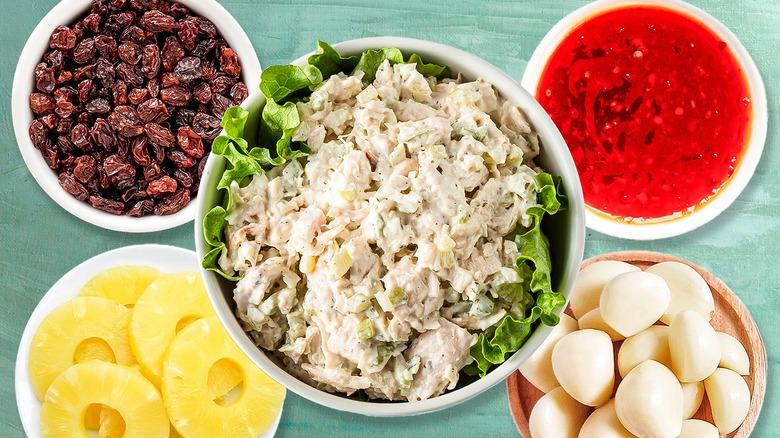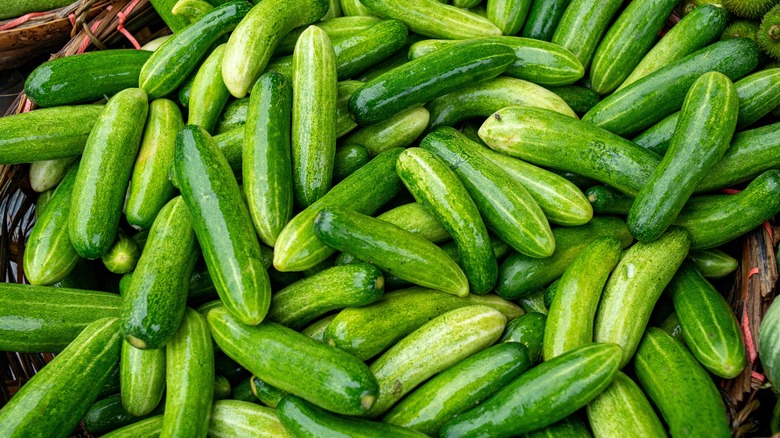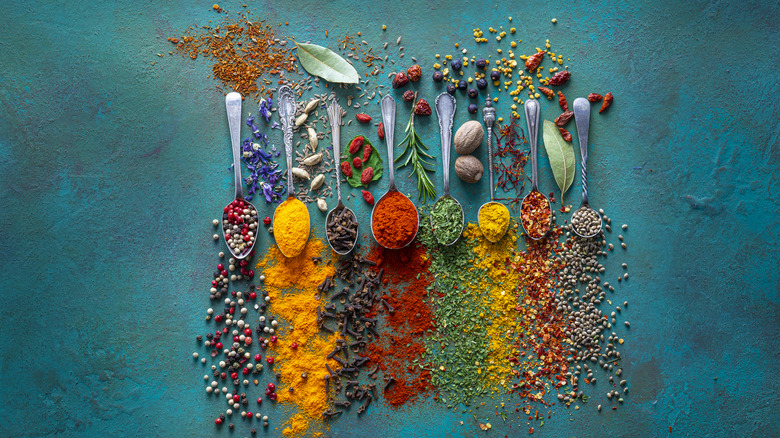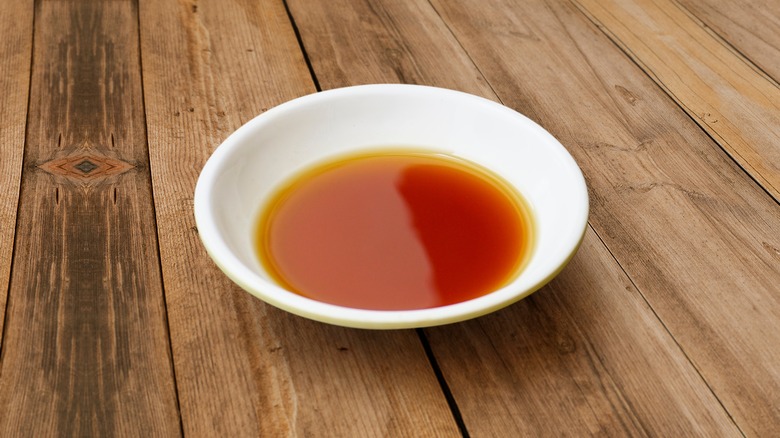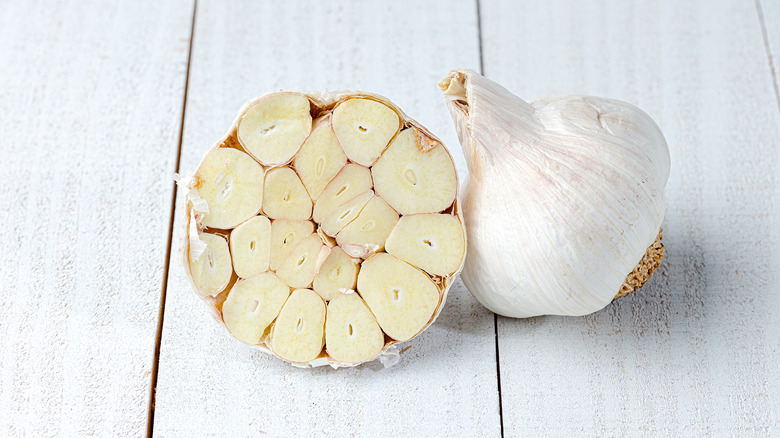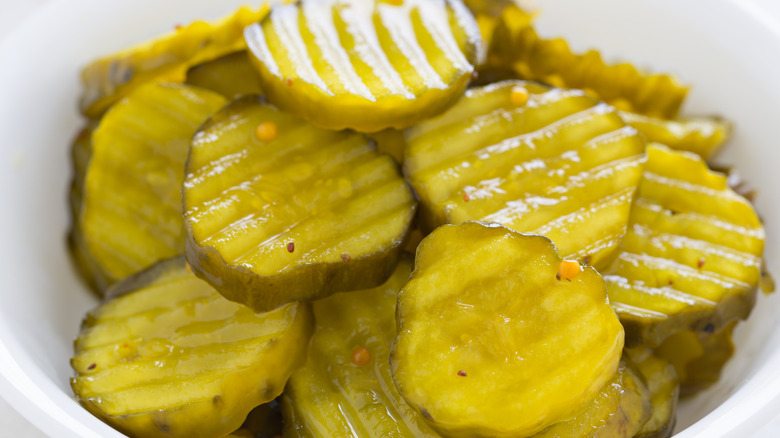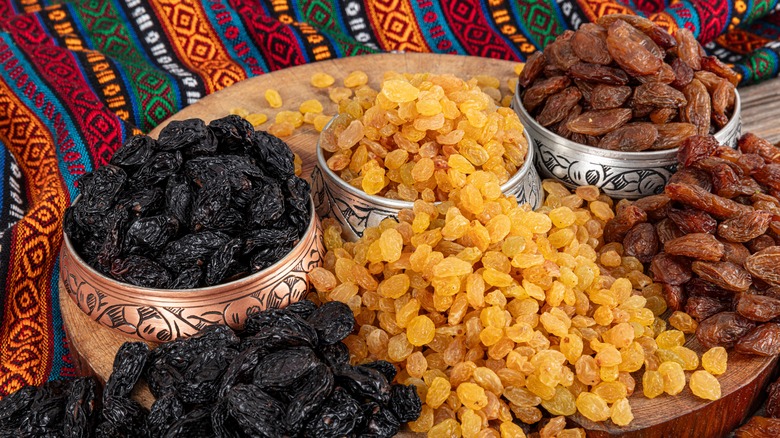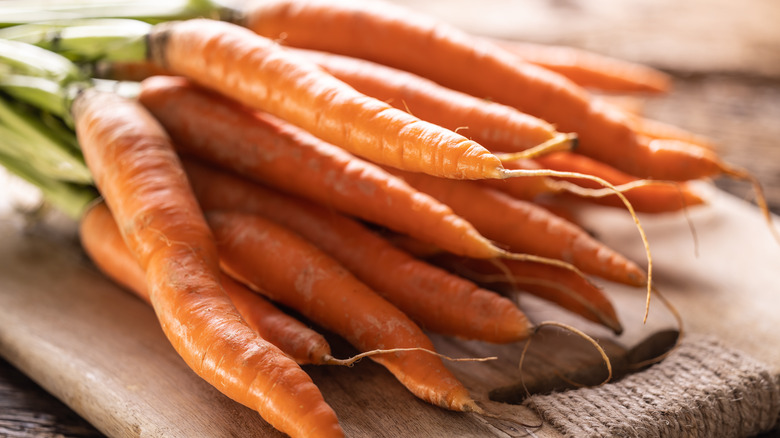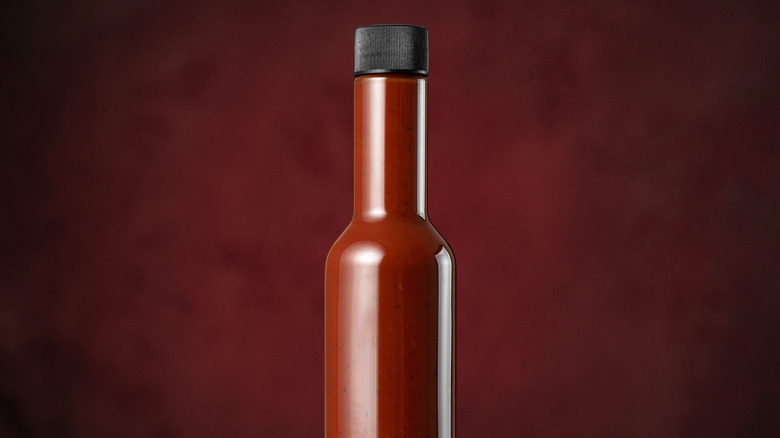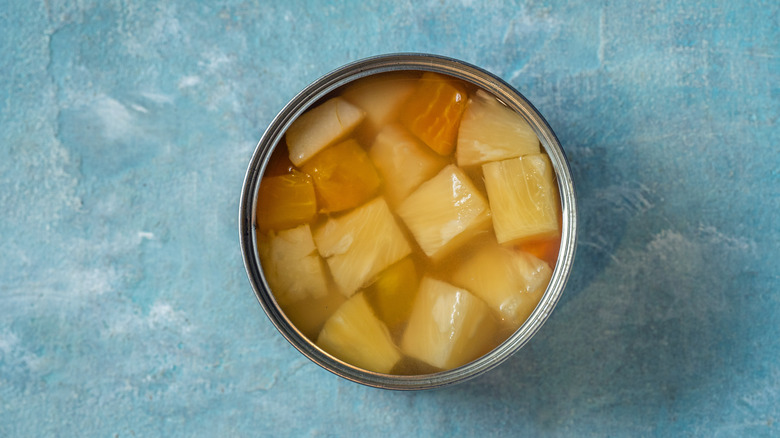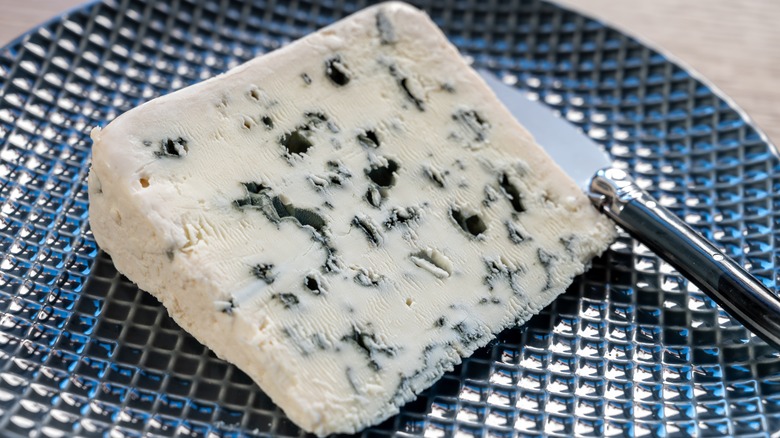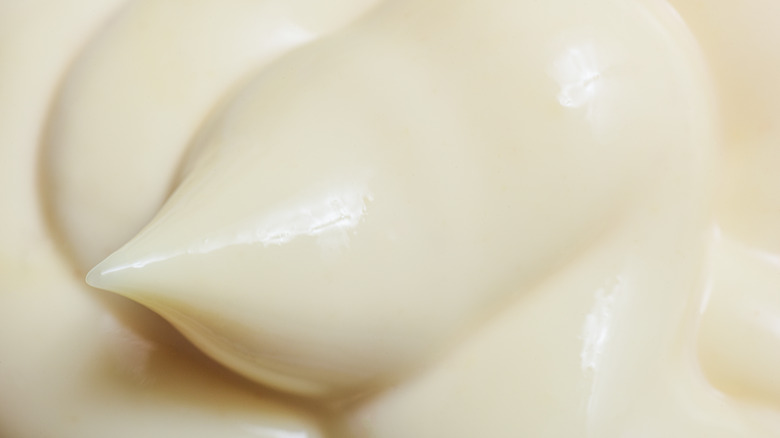12 Ingredients You Should Never Use In Chicken Salad
Chicken salad is a beloved dish with endless variations, whether served in sandwiches, on top of greens, or as a stand-alone meal. It's one of those recipes that can be customized to fit personal preferences, combining ingredients that range from the simple to the extravagant. However, making the perfect chicken salad isn't just about what you add — it's also about what you don't include.
There are certain ingredients that can ruin the flavor, texture, or overall appeal of chicken salad. Some additions can create too much moisture, while others might introduce overpowering tastes or off-putting textures. Chicken salad thrives on balance — between tender chicken, crunchy vegetables, and creamy dressing — and achieving this harmony requires careful ingredient selection.
The reality is chicken salad can be really great or kind of gross, honestly. Personally, I've made both, and this is your chance to learn from the mistakes I made during the years I spent cooking professionally in New Orleans and New York. I have since been writing about food after leaving the fancy kitchen for good in 2022. This guide introduces 12 ingredients that should be avoided to make a great chicken salad. Whether you're a seasoned cook or just experimenting with your own recipes, knowing what not to use can help you avoid common pitfalls and craft a chicken salad that hits all the right notes. Let's dive into the ingredients that can sabotage your dish and discover why they're best left out of your bowl.
Watery vegetables
Vegetables are essential in chicken salad for added texture, color, and flavor, but not all veggies play well with the creamy base of this dish. Watery vegetables, which may seem like refreshing additions at first glance, can quickly ruin the consistency of your salad because of their high water content. This gets released into the salad over time, turning a once-velvety dressing into a thin, runny mess.
Cucumbers, in particular, are notorious for this. Even if you de-seed them, they still release water as they sit in the salad, diluting the flavor and causing the other ingredients to lose their crispness. Zucchini can have a similar effect.
If you're dead set on including watery vegetables, try salting them first to draw out excess water, or serve them on the side to avoid soaking your salad. Remember, texture is just as important as flavor in chicken salad, and keeping watery vegetables out ensures that every bite retains that satisfying combination of creamy and crunchy.
Overpowering spices
Spices can be a fantastic way to elevate the flavor of your chicken salad, but some spices can be too aggressive for this mild dish. Chicken salad is known for its subtlety — a perfect combo of creamy, savory, and tangy elements that combine into a cohesive bite. Introducing bold spices such as turmeric shifts the dish from its comforting, familiar taste into something unfamiliar and less enjoyable.
Cumin, for instance, has a smoky, earthy flavor that pairs well with dishes like chili or tacos, but in chicken salad, it can dominate the other ingredients. Similarly, chili powder can bring too much heat, overwhelming the salad's velvety dressing and masking the chicken's natural flavor.
If you're looking for a little extra flavor in your chicken salad, stick with herbs like parsley, tarragon, or dill, which add freshness without overwhelming the dish. Aside from herbs, a sprinkle of black pepper, a dash of smoked paprika, or a small amount of mustard powder can also provide depth while allowing the chicken and dressing to stay in the spotlight. The goal is to complement the dish without overdoing it, ensuring all the ingredients work together rather than compete for attention.
Too much citrus juice
Citrus juice can bring a burst of brightness to chicken salad, cutting through the richness of the mayonnaise and providing a zesty lift. However, there's a fine line between just enough and too much. When you add too much lemon or lime juice, you risk making the salad too acidic. This not only affects the flavor, making it too tart or sour, but it can also alter the texture of the chicken itself.
The acid in citrus juice breaks down the proteins in the chicken, causing it to become mushy over time. What starts as tender, well-cooked chicken can turn into a mealy, unappetizing texture if left to marinate too long in an acidic dressing. Additionally, too much citrus can override the other ingredients, leaving you with a dish that tastes more like a citrus salad than a well-rounded chicken salad.
To avoid this, use citrus juice sparingly. A small squeeze of lemon or lime can brighten the dish without overpowering it. If you're craving more muted flavor, consider adding zest instead. Citrus zest provides all the brightness and fragrance of the fruit without the acidity that can compromise the dish. This way, you can maintain the balance between the ingredients while still adding a lively note.
Fish sauce
Fish sauce is a staple in many Asian cuisines, prized for its intense umami flavor. It's made from fermented fish, hence the pungent aroma and concentrated salty sourness. In small amounts, it can add depth and richness to dishes that can handle such a strong flavor, like stir-fries, soups, and marinades, but it doesn't belong in chicken salad. The strong, briny taste of fish sauce can clash with the smooth, thick dressing and mild chicken, making the dish taste too off-kilter and overly salty, drowning the other ingredients.
If you want to add a bit of umami to your chicken salad, try using a small amount of soy sauce or Worcestershire sauce instead. These ingredients can provide a savory depth without overwhelming the dish. A sprinkle of grated parmesan or a few drops of miso paste can also add that rich, umami flavor without negatively impacting the creamy dressing. Remember, the goal is to enhance the salad, not dominate it with an intense flavor that feels out of place.
Raw garlic
Garlic is a beloved ingredient in many dishes, but raw garlic can be far too harsh for chicken salad. The pungent, almost spicy bite of raw garlic has a tendency to overtake the other, more subtle flavors, leaving the salad with a sharp, lingering aftertaste. While raw garlic works well in recipes in which it has a chance to cook down and mellow, chicken salad benefits from a gentler flavor profile.
If you're a garlic lover and want to incorporate it into your chicken salad, consider using roasted garlic or garlic powder. Roasting garlic softens its sharpness and brings out a sweet, lush flavor that complements the other ingredients without taking over. Garlic powder is another option that offers a mild, savory note without the intense bite of raw garlic. Alternatively, you could add a little horseradish to your chicken salad for that spicy kick.
By opting for a milder version of garlic, you can still enjoy its savory depth without drowning out the other ingredients.
Sweet pickles
Pickles are often a delicious addition to chicken salad, providing a piquant crunch that goes nicely with the creamy dressing. However, sweet pickles can disrupt the balance of flavors. Chicken salad is best when it maintains a savory profile with just a hint of sweetness from ingredients that pair well with the mayonnaise-based dressing, like apples or grapes, but sweet pickles can tip things too far into sweet territory.
Sweet pickles' sugary brine tends to couple unpleasantly with the other ingredients and can dilute the flavor of the dressing. The result can be a dish that feels more like a dessert than a savory entree. If you want to include pickles in your chicken salad, opt for dill pickles or cornichons instead. These pickles have a sharp, briny flavor that complements the overall chicken salad without overwhelming the dish with sweetness. Stick with tangy, vinegary pickles that add flavor without clashing with the rest of the dish.
Raisins
Raisins are a contentious ingredient in chicken salad. While some people enjoy the occasional burst of sweetness they provide, raisins are an unwelcome addition for many. Their concentrated sweetness can overwhelm the dish, detracting from the savory elements and creating an uneven flavor profile. Chicken salad is traditionally a savory dish with just a hint of sweetness, so raisins can push it too far.
The texture of raisins can also be a problem. Raisins are chewy, which can feel out of place in a dish that relies on a balance of tender, butter-like, and crunchy elements. Their sticky saccharine nature makes them feel like an odd addition.
If you're looking for a touch of sweetness in your chicken salad, opt for fresh grapes or apples. These crisp fruits offer a more muted sweetness and a refreshing crunch lacking in raisins, and they work well with the other ingredients.
Overly crunchy ingredients
The texture is a crucial aspect of chicken salad, and overly crunchy ingredients can make things texturally unsound. Raw carrots, for example, are often too firm and crunchy to work well with the tender chicken and creamy dressing. Instead of providing a pleasant contrast, these ingredients can make the salad feel disjointed, with each bite feeling inconsistent.
To avoid this issue, choose vegetables that offer a softer crunch. Lightly cooked or blanched vegetables, like green beans, peas, or even roasted red peppers, can add texture without being too hard. These vegetables maintain their bite without disrupting the velvety consistency of the salad. You want the textures to work together, not compete with each other.
Tougher ingredients can also make the salad difficult to eat, especially when served as a sandwich filling. The key is to add just enough texture to keep the salad interesting without going overboard with ingredients that feel out of place.
Too much hot sauce
Hot sauce can add a welcome kick to many dishes, but chicken salad isn't the best candidate for a heavy dose of heat. While a dash of hot sauce can elevate the flavors, too much can easily rule over the milder ingredients and leave your salad tasting way too spicy. Chicken salad is meant to be creamy, cool, and livening, and adding too much heat can take it in the opposite direction and make it taste not so fresh.
If you enjoy a bit of spice in your chicken salad, opt for a mild hot sauce, like a lightly smoky chipotle aioli, and use it sparingly. You can also try adding a pinch of cayenne pepper or a few red pepper flakes for a more easygoing intensity that blends into the other flavors rather than dominating them.
The key is moderation. By keeping the heat in check, you'll create a chicken salad that has just the right amount of kick without losing its cool.
Canned pineapple
Canned pineapple may seem like a convenient option for adding sweetness to your chicken salad, but it can cause more harm than good. The juice from canned pineapple tends to leak into the salad, making it watery and diluting the creamy dressing. Additionally, the sweetness of canned pineapple is often too intense, throwing off the even flavors and making the salad taste sickeningly saccharine.
If you're craving a tropical twist in your chicken salad, fresh-cut pineapple is a much better choice. Fresh pineapple has a firmer texture and a more subtle sweetness that won't overpower the other ingredients. Be sure to drain the pineapple thoroughly before adding it to the salad to prevent any excess moisture from seeping into the dressing.
Canned pineapple can also make the salad too acidic, as the syrup it's packed in contains citric acid. This acidity is necessary to safely preserve the pineapple, but the fruity, sweet, and acidic flavors can clash with the savory flavors of the chicken and dressing, leaving you with a dish that tastes rather odd. Fresh pineapple offers a cleaner, more natural flavor that complements the salad without overwhelming it.
Strong-flavored cheeses
Cheese can be a delicious addition to many dishes, but when it comes to chicken salad, it's best to avoid using strong-flavored cheeses. Varieties like blue cheese, Roquefort, and even sharp cheddar have such intense flavors that they make it difficult to appreciate the more delicate notes of the chicken, herbs, and dressing.
Strong cheeses with distinct tangs can shut down the mayonnaise or yogurt base of your chicken salad, overwhelming your palate. Instead of a harmonious blend of flavors, you end up with a confusing bite where the cheese takes center stage, and the chicken becomes an afterthought. It also turns what should be a light dish into something heavy and overly rich.
If you're determined to add cheese to your chicken salad, opt for milder varieties that complement rather than mute the other ingredients, keeping the chicken salad light and fresh. Creamy cheeses like ricotta, mozzarella, or even mild goat cheese can provide a smooth richness that blends well with the salad's overall texture and flavor. Even smoked gouda can be a good ingredient in chicken salad for a more Southern flare.
Too much mayonnaise
Mayonnaise is often the cornerstone of chicken salad, giving it that smooth, luscious texture everyone loves. However, too much mayo can quickly tip the balance from delightful to overwhelming. When overused, mayonnaise not only makes the salad excessively rich but also smothers the natural textures and flavors of the chicken, vegetables, and seasonings.
Instead of a well-rounded bite, you might end up with a dish that tastes heavy and one-dimensional. The dressing becomes the star, overshadowing the subtle, savory elements of the other ingredients included.
Another issue with an overabundance of mayonnaise is the greasy mouthfeel it can create. While mayo is undoubtedly creamy, in large amounts, it can coat your palate with a heavy, oily texture that leaves the dish cloying. Instead of a refreshing, light meal, you're left with something that feels more indulgent than it should.
